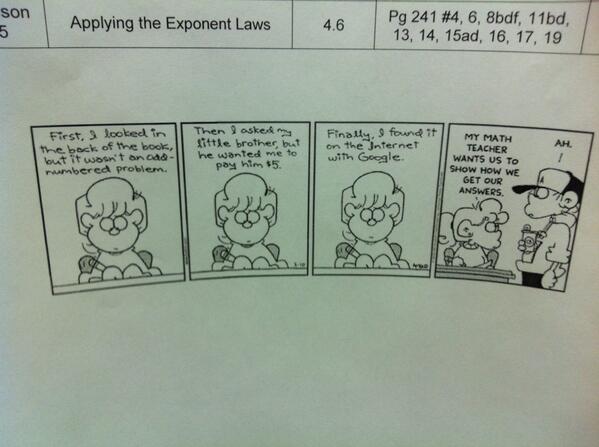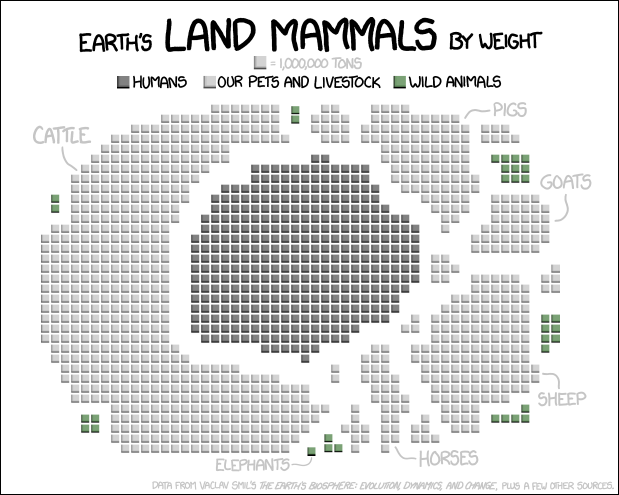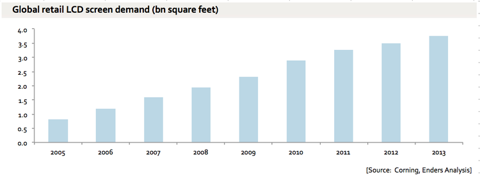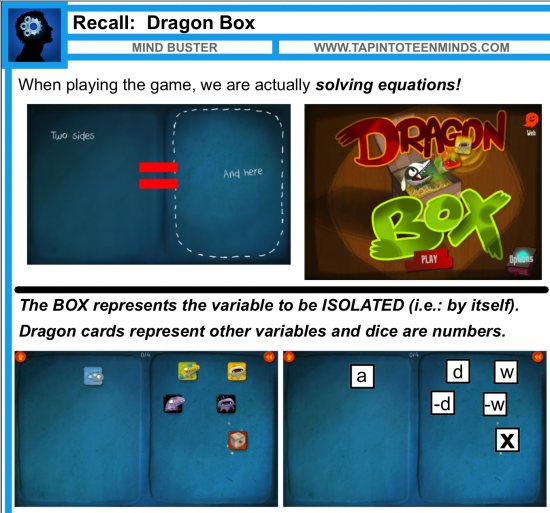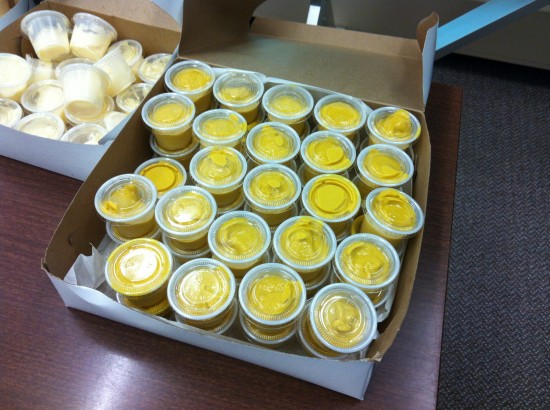 I have been teaching solving systems of equations for many years and I have found it to be really nice and challenging and rich for academic students. But for applied students it can be meaningless and very abstract. Here is the expectation from grade 10 applied: solve systems of two linear equations
involving two variables with integral
coefficients, using the algebraic method
of substitution or elimination (Sample
problem: Solve y = 2x + 1, 3x + 2y = 16
for x and y algebraically, and verify algebraically
and graphically.) Do you see what I mean? Too abstract for applied students. Even within a context, the method of elimination or substitution is still abstract. However, if you can find a way to take away that abstraction of the solving process (at least for a minute) then you might actually get them to eventually buy into those methods. That being said I love this post from the Making Math Meaningful blog giving a problem that is manageable for applied students and then giving them manipulatives to create the solution. Take a look at the solution seen here to the problem "If 4 jujubes and 6 smarties costs 24 cents and 2 jujubes and 5 smarties cost 16 cents, then how much does 1 jujube costs and how much does 1 smartie cost? "
I have been teaching solving systems of equations for many years and I have found it to be really nice and challenging and rich for academic students. But for applied students it can be meaningless and very abstract. Here is the expectation from grade 10 applied: solve systems of two linear equations
involving two variables with integral
coefficients, using the algebraic method
of substitution or elimination (Sample
problem: Solve y = 2x + 1, 3x + 2y = 16
for x and y algebraically, and verify algebraically
and graphically.) Do you see what I mean? Too abstract for applied students. Even within a context, the method of elimination or substitution is still abstract. However, if you can find a way to take away that abstraction of the solving process (at least for a minute) then you might actually get them to eventually buy into those methods. That being said I love this post from the Making Math Meaningful blog giving a problem that is manageable for applied students and then giving them manipulatives to create the solution. Take a look at the solution seen here to the problem "If 4 jujubes and 6 smarties costs 24 cents and 2 jujubes and 5 smarties cost 16 cents, then how much does 1 jujube costs and how much does 1 smartie cost? "Curriculum Tags: MPM2D, MFM2P
http://marybourassa.blogspot.ca/2014/03/mfm2p-day-23.html
When not creating his own from scratch Kyle at the Tap Into Teen Minds blog is adapting found resources and turning them into 3Act Tasks. Some new ones include a probability task for MDM4U and a linear relations task for grade 9. And the other thing he does is matches them up to Ontario curriculum (by course and expectation), even Dan Meyer's. And then he does another solid and makes them searchable by grade, expectation and author.
Curriculum Tags: MFM1P, MPM1D, MDM4U
http://tapintoteenminds.com/3act-math/darius-washington-free-throws-win/
http://tapintoteenminds.com/3act-math/crazy-taxi/
 And why not some more basketball math. Warren Buffet has put up a Billion dollars for anyone who can pick every game in every bracket in this year's college basketball tourny. Scientific American has done the math on this and apparently only each American needs to enter 425 trials for someone to be likely to win. Here it is
And why not some more basketball math. Warren Buffet has put up a Billion dollars for anyone who can pick every game in every bracket in this year's college basketball tourny. Scientific American has done the math on this and apparently only each American needs to enter 425 trials for someone to be likely to win. Here it isCurriculum Tags: MDM4U
http://blogs.scientificamerican.com/roots-of-unity/2014/03/17/we-only-need-to-fill-out-425-brackets-each-to-win-buffets-billion/

Hey do you need some data on the frequency of rhyming words in pop songs? And as an extra bonus, it's dynamic. Click on the desired pair of rhyming words in the graph and the graph changes to give the historical frequency in pop music.
Curriculum Tags: Gr7, Gr8, MBF3C, MDM4U, MAP4C
http://www.slate.com/articles/arts/culturebox/2014/02/justin_bieber_and_the_beatles_they_both_liked_to_rhyme_the_same_words.html
 OK, so this I love. Its one of my favourite MDM4U problems. the ones that deal with false positives and their meaning. Take this example of a test for Alzheimer's that is supposed to be 90% accurate. However, when you actually do the math and incorporate that accuracy on two groups of people (those with and those without Alzheimer's) you actually see that the test isn't that accurate at all due to all the false positives. Check out the math and the nice visuals here.
OK, so this I love. Its one of my favourite MDM4U problems. the ones that deal with false positives and their meaning. Take this example of a test for Alzheimer's that is supposed to be 90% accurate. However, when you actually do the math and incorporate that accuracy on two groups of people (those with and those without Alzheimer's) you actually see that the test isn't that accurate at all due to all the false positives. Check out the math and the nice visuals here. Curriculum Tags: MDM4U
http://ampp3d.mirror.co.uk/2014/03/11/how-a-90-accurate-alzheimers-test-can-be-wrong-92-of-the-time/
 It seems that there still needs to be some work done in this area. Both genders think women are bad at math! That is not good. Read about it here.
It seems that there still needs to be some work done in this area. Both genders think women are bad at math! That is not good. Read about it here.Curriculum Tags: All
http://news.sciencemag.org/math/2014/03/both-genders-think-women-are-bad-basic-math

And to make things worse now it seems that genetics might predispose people to math anxiety. This doesn't bode well for the growth mind set. Read about it here.
Curriculum Tags: All
http://www.sciencedaily.com/releases/2014/03/140317095843.htm
Do you need some examples of scatter plots of real data? These aren't so good for line of best fit but they are pretty good for talking about the meaning of where points are on the graph. These graphs are about the connection between life expectancy and income. Go to the website for the details.
Curriculum Tags: MDM4U
http://www.nytimes.com/interactive/2014/03/15/business/higher-income-longer-lives.html
And finally this week, some mathematical poetry about parallel lines.
Curriculum Tags: All
https://twitter.com/SciencePorn/status/441748070133272577/photo/1














